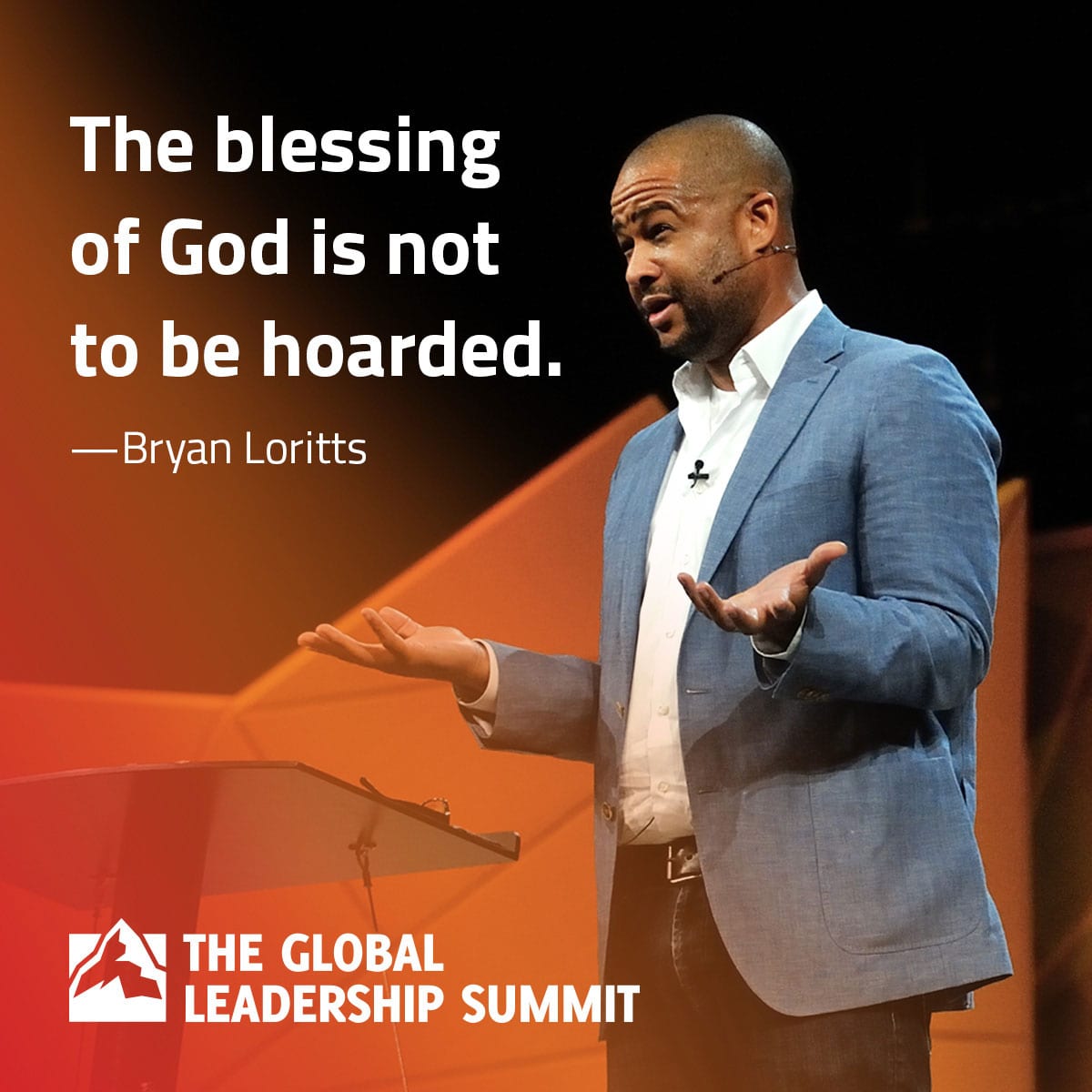
The blessing of God is not to be hoarded.

The blessing of God is not to be hoarded.

Well it’s been just about thirty days since the GLS.
Thirty days since Mr. Encouragement himself, Chris McChesney delivered, with his nice smile, these simple words, “Execution is harder than strategy.” (Trigger alert: rant ahead.)
I just spent $199 to hear that? Dude, I go to these conferences to get pumped up, not face reality. Tell me something I can do to change the world, my world, in three steps. Don’t tell me that applying what I heard at the GLS is hard. Make it look easy. You know. The way Alan Mulally so calmly talked about turning Ford Motor Company around and leading it out of $17 billion in debt.
A great many of us came out of the GLS all fired up to change something about our life (or something in our spouse’s life J), our leadership behavior or organization. And now 30 days later, exactly 87 of us know where our Summit notebook is. The rest of us, well, we intend to get back to it and review what struck us as really important. Later in September, you know, when things settle down.
So this got me thinking: What would Mr. Encouragement actually say to me?
Schmidt: Listen, Chris. I was slammed in August with some serious work pressure.
McChesney: “The whirlwind is all the work done every day just to keep things going.”
Schmidt: Lots of irons in the fire, travel, home stuff, you get it.
McChesney: “When urgency and the important clash, urgency wins.”
Schmidt: OK. I’ll get my GLS notebook out. BTW, I took away at least five or six things to reflect and act on.
McChesney: ”You might find it hard to let go of a lot of good goals until you start serving a greater goal.”
Schmidt: The challenge is to identify and isolate on the one thing I can actually act on.
McChesney: “Don’t go big, go narrow. Focus on the Wildly Important Goal—a WIG—a goal that makes all the difference. Failure to achieve this goal renders any other achievements inconsequential.”
Schmidt: OK. I’ll find one wildly important take away from the GLS and focus on it. And what about the rest of my GLS notes?
McChesney: “There will always be more good ideas than capacity to execute.”
Like many of you I was challenged in my spirit and my mind and came away from the GLS with some solid ideas. So this week, I pushed into the whirlwind of my Summit notebook and identified my WIG taken from Dr. Travis Bradberry’s talk on emotional intelligence:
“Self-awareness is awareness of your tendencies.”
In the year ahead, my WIG is to strengthen my awareness of what’s going on in my body, in my thoughts and how I come across to others. As Bradberry said, “emotional intelligence is a flexible skill that can improve with effort.”
Ok. I’ve got my WIG. Your turn.
Time to WIG out.
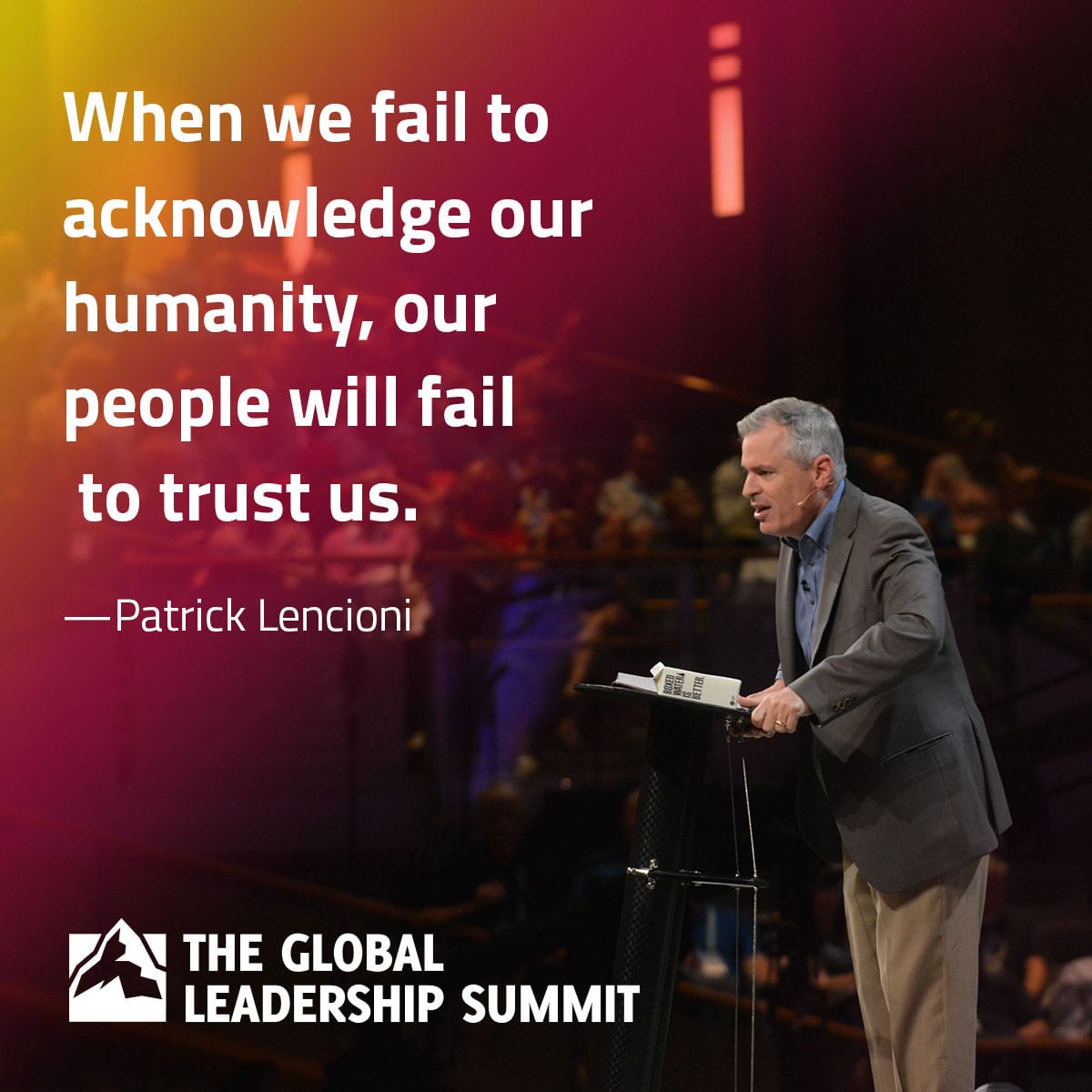
When we fail to acknowledge our humanity, our people will fail to trust us.
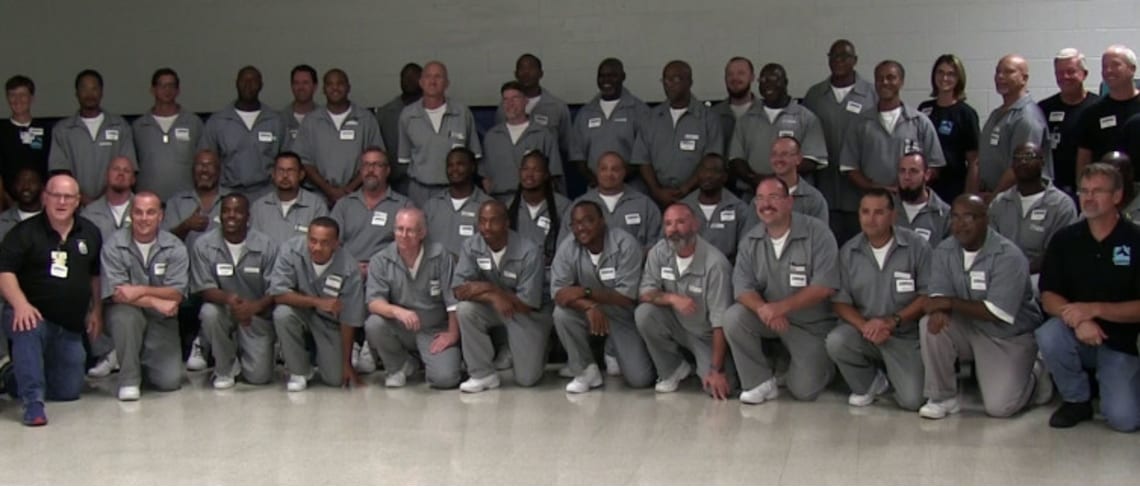
“A great leader’s courage to fulfill his vision comes from passion, not position.” John Maxwell
The GLS was held in 43 prisons in 2016, up from 11 prisons in 2015. The hope and desire from the field only grows to bring the GLS into more US prisons in the future. One of the prisons that’s been participating in the GLS is Southeast Correctional in Missouri. To document and measure the way the GLS influences prisoners, our friends at Southeast Missouri State University have been conducting a study on prisoners who attended the GLS at Southeast Correctional over the last two years.
The results are astounding.
What they’ve discovered is that by delivering quality leadership training to prisoners, they establish the potential to transform followers to leaders, create a more receptive and peaceful inmate culture and better prepare inmates for release and reintegration into society.
The findings of this study support the idea that when prisoners attend the Global Leadership Summit they develop characteristics of servant leadership. Specifically, after participating in the GLS, prisoners reported increased feelings about their ability to:
They also reported that the GLS helped them to become a better leader.
Studies have shown that being a “follower” is a contributing factor in many prisoners’ entrance into criminality. But by strengthening servant leadership characteristics in prisoners, not only can they transform into leaders, but human capital is established and reentry/reintegration can be positively impacted. This innately aligns with the restorative justice competencies of healing, reintegration and personal change.

Something to note, most of the prisoners included in the GLS training are housed in a Level 5 (maximum security) prison. Whereas some participants will eventually transfer their servant leadership characteristics to life outside of prison, thereby having an impact in their families and communities, many participants are serving sentences of life without parole. Consequently, they are placed in a unique position to use their leadership skills to positively change the culture of the institution. Anecdotal reports from prison staff suggest that this change in institution culture is already notable.
Can you imagine what could happen if every prisoner, in every prison in the US had access to servant leadership development training?
To make a gift to the Willow Creek Association,
go online at willowcreek.com/give
The research team from Southeast Missouri State University includes: Raleigh Blasdell, Michelle Kilburn, and John Wade of Southeast Missouri State University. The findings presented are part of an ongoing evaluation of the impact of the GLS on offender participants. An earlier version of the material presented here was included in the Newsletter of the Restorative and Criminal Justice Section of The Academy of Criminal Justice Sciences.

Do your best without losing sight of who you want to be.

When the GLS started taking off internationally, Norway was one of the first countries to embrace it back in 2005. At the time, we didn’t know if it would translate contextually to other nations, but because God was calling us to go, we went.
What we learned is that not only does the GLS translate to other nations, but God is using it to transform leaders and even entire countries in incredible ways. “When you change a leader, you can change a church — you can change a country” – There’s a ripple effect that occurs when we develop godly leaders.
Here is a small example of how one leader was impacted, and how it changed her church, and now her country.
Change a leader
Liv Heskestad, a business woman and volunteer in her church, attended that first GLS held in Norway. It changed the way she leads and how she sees the world. “I learned how important it is to lead well,” Liv explains. “I learned the importance of leading forward and looking to the young people to give them possibilities. I learned to care for all and look for the best in all people – To push and give confidence, telling people, ‘You can do this.’ And I have and seen some incredible results of that.
“I think GLS changes the hearts of people. And when you change hearts, you change minds and you change society.”
Change a church
There are two types of churches in Norway — the state church and the free church. The state churches are typically strict and traditional, practicing more rituals and liturgy. Over time, Norway is seeing more and more free churches emerge, which reflects a newer, contemporary way of doing church and the changing society. The GLS is helping the church in Norway to be more open, caring for their neighbors in need.
“In Norway we usually don’t bother one another,” Liv explains. “You do what you want to do, and I do what I want to do. You don’t say anything to me, or me to you. The culture is that way. But we need to get a bigger heart for our neighborhood.
“Norway needs the GLS because Norway is a very secular society. I think we need to know that the church is the hope of our world. We need to see the needs of others and bring them to Church.”
As a result of Liv’s experience at the GLS, her own church embraced a volunteer culture that seeks to serve their community in need of a new hope.
Change a country
Norway has recently fallen into difficult economic times in certain areas due to a crack in the oil industry. Thousands of people recently lost their jobs as a result – which is somewhat of a culture shock for those who are used to a normally flourishing economy. Liv shares the need business leaders have in this context, “We know that a lot of these business leaders need something different. They need different inspiration, different thoughts, different ways of leading… and we want to give them that.”
This fall, Norway will be hosting the first GLS targeted specifically for leaders in the business community. Their hope is to address the issues Norway is experiencing today, and use the skills learned to turn the country around for the better.
How has the GLS helped change you, your church, or even your country?
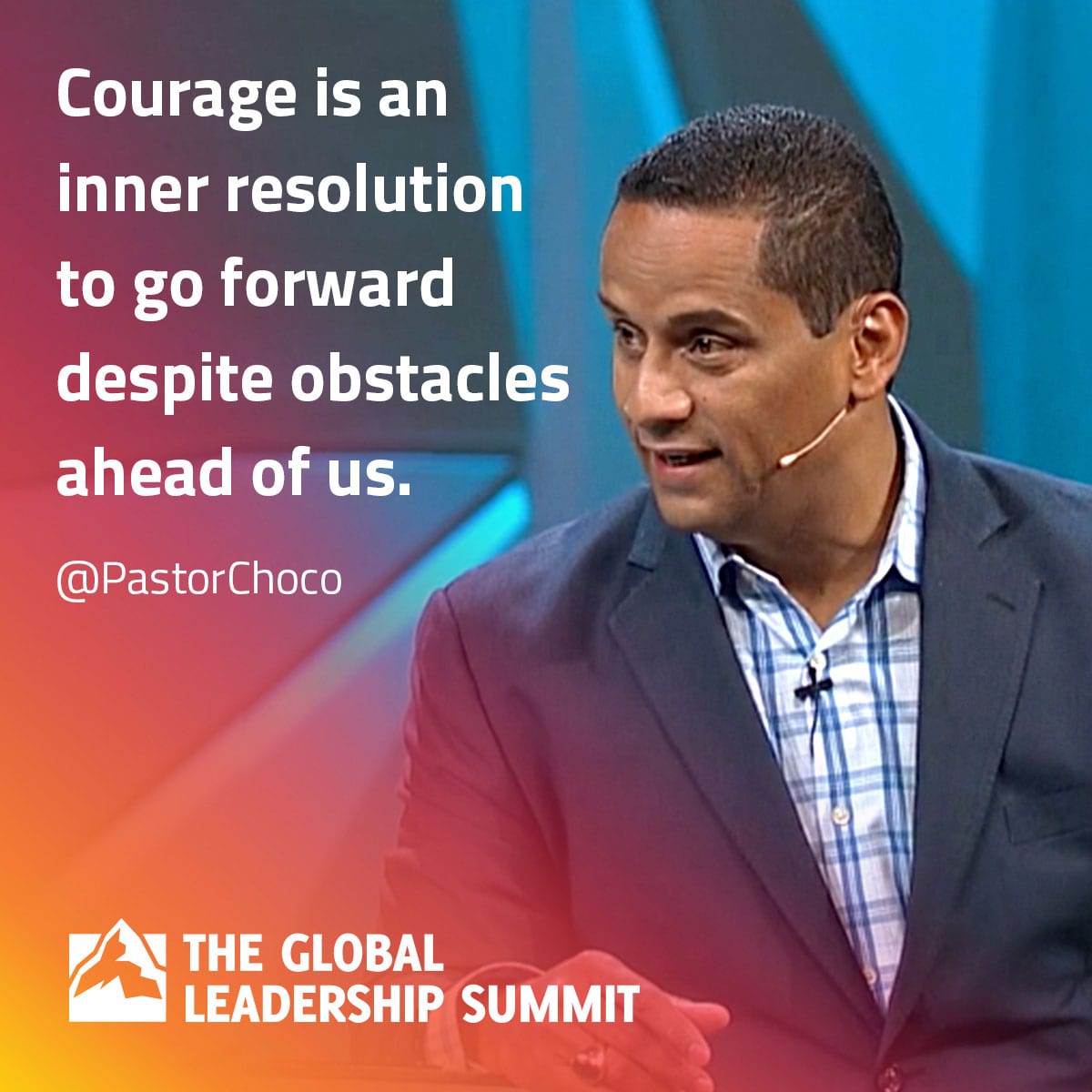
Courage is an inner resolution to go forward despite obstacles ahead of us.
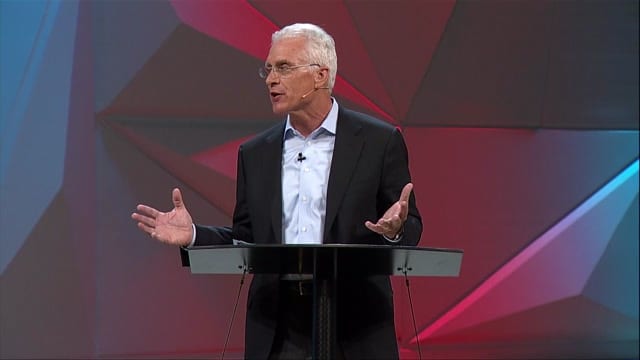
Leading up to this excerpt, Don Flow shares how he considers work to be the place Christ has called him to exercise faith, live love and bring hope. This impacts his prayer life as well as how he interacts with people on a daily basis as he exercises leadership.
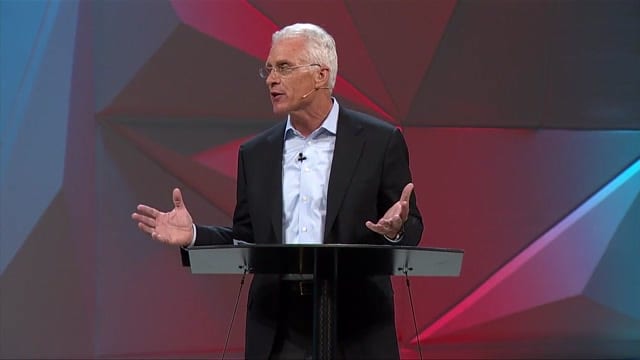
Leading up to this excerpt, Don Flow shares how he considers work to be the place Christ has called him to exercise faith, live love and bring hope. This impacts his prayer life as well as how he interacts with people on a daily basis as he exercises leadership.
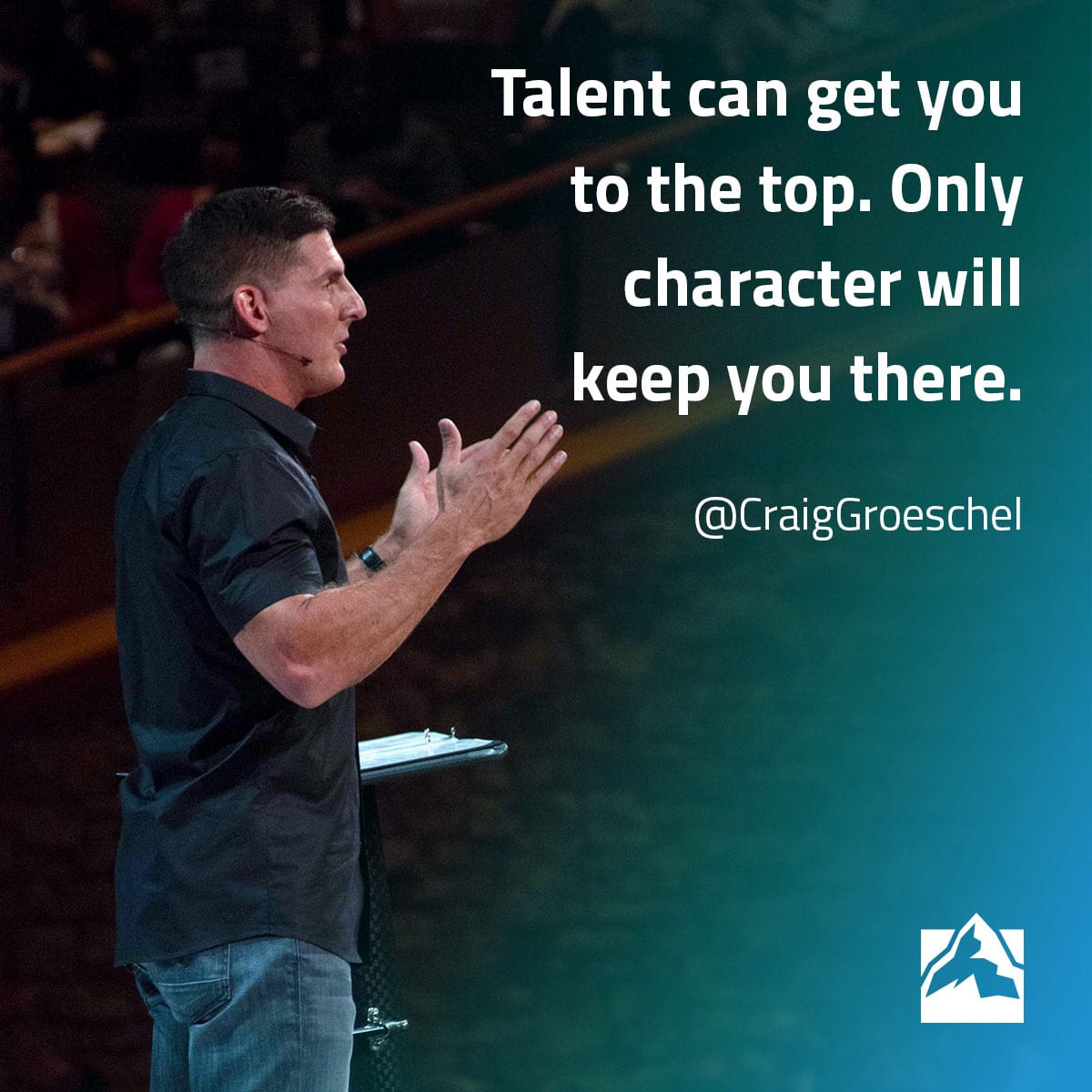
Talent can get you to the top. Only character will keep you there.
“We welcome and encourage comments on this site. There may be some instances where comments will need to be edited or removed, such as:
If you have any questions on the commenting policy, please let us know at heretoserve@globalleadership.org”
Recent Comments